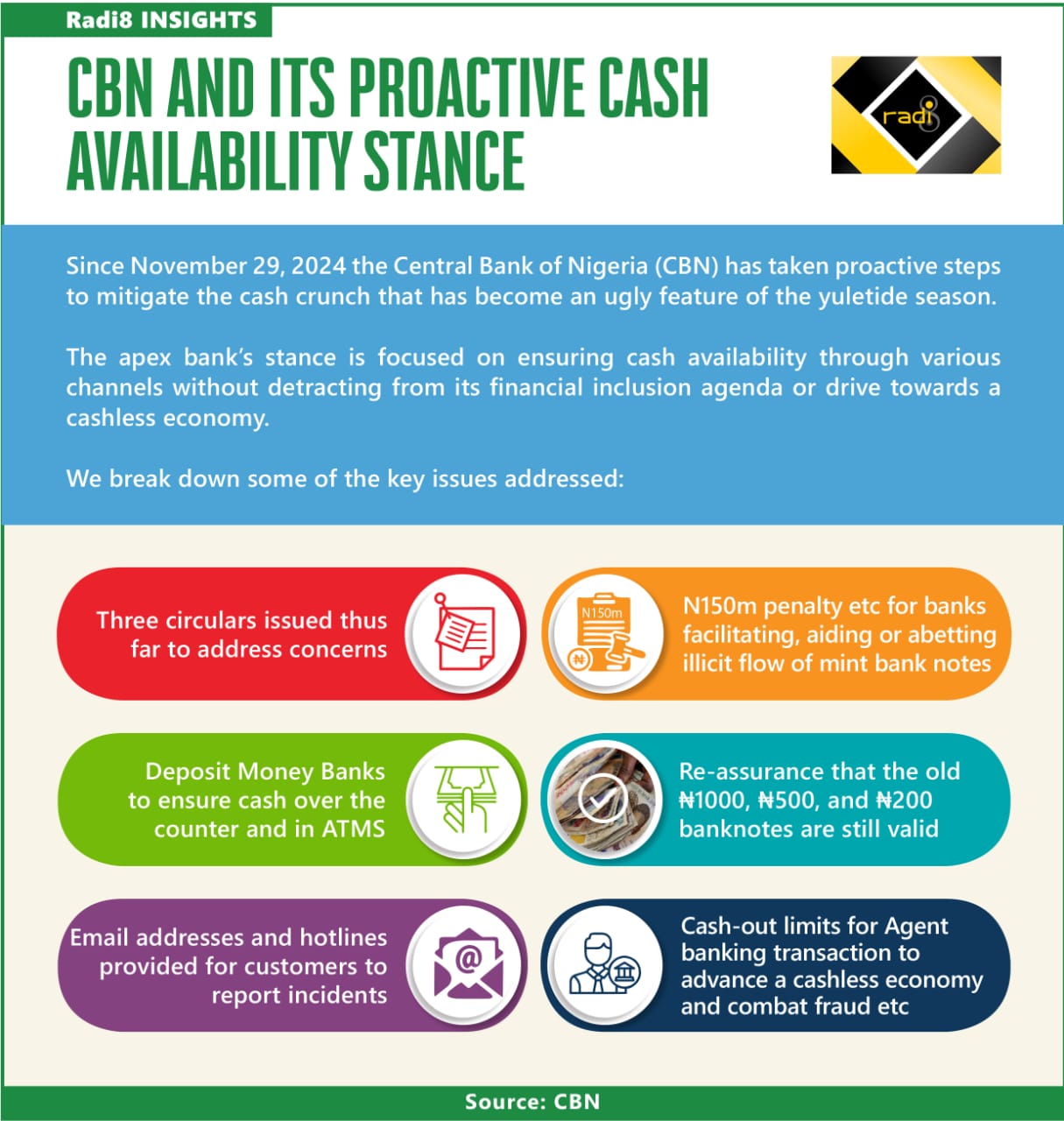...To get all news updates, Join our WhatsApp Group (Click Here)
Also Join our WhatsApp Channel (Click Here)
Let us look at a few figures……..
Nigeria’s population is put at a little over 200 million people while the UK population is about 68 million. This means that the Nigerian population is about three (3) times that of the UK.
As at June 2023, the UK banking system had about 49,421 Automatic Teller Machines and almost 2.3 million Point of Sales Terminals.
By contrast, the Nigerian banking system had a little over 22,600 ATMS according to TechCabal and is projected to reach 29,000 by 2029 according to Statista. Conversely, Nigeria boasted 1,665,664 POS terminals as at December 2022. Meanwhile, figures attributed to Inlaks, which is described as Nigeria’s biggest ATM operator, suggest that Nigeria needs at least 60,000 ATM machines to serve its population of over 200 million.
Where is all this going? Well to borrow a phrase from the comedian, Jeff Foxworthy; hold my beer, sir!
Those who know me well know what my favourite Igbo proverb is. It goes something like this in translation – “the disease that gives you warning, does not kill you!” It is a proverb that underlines the imperative of proactivity, what the Igbo people might call igba mbo.
So, I was really pleased when I read that the Central Bank of Nigeria (CBN) was taking a proactive step to ensure that there is no cash scarcity this Christmas.
Nigerians love cash and that love can become obsessive and reach fever pitch at festive periods. Have you been to Abeokuta during Ojude Oba? Or to Kano during the Durbar? Or Onitsha during Ofala? Those are regional festivities. So, you can imagine what happens at Christmas!
All efforts at driving a cashless policy and economy seem to collapse when festivities come around the corner and this year, the CBN was quick to take proactive action weeks before the festivities reach fever pitch. But the apex bank’s interventions seem to be having unintended consequences even though as at the time of writing this, the apex bank had put out three (3) different circulars and one press release around the issue.
First, is a not-so-surprising pushback from the banks and then a seeming lack of understanding by the general public no thanks to rampant mis-information.
The issue of cash scarcity around the Christmas period worsened under the sway of Godwin Emefiele at the CBN. The fall-out from the disastrous naira redesign he superintended over at the apex bank continues to haunt our banking vaults but Olayemi Cardoso and team are focused on making sure we turn that dark corner.
Let us begin with the first circular dated November 29, 2024: “Cash Availability Over the Counter in Deposit Money Banks (DMBs) and Automated Teller Machines (ATMs).” The circular had two sections: DMBs were directed to ensure efficient cash disbursement to customers Over the Counter (OTC) with the CBN insisting that it will enforce the directive and ensure compliance.
Secondly, members of the general public were encouraged to report instances where they are unable to get cash Over the Counter or through ATMs. The CBN ended with a list of 37 email addresses and phone numbers across the 36 states and FCT for reporting issues.
On paper, it looked like Nigerians and the cash worries were all sorted this Christmas but it didn’t take time for the expected pushback to occur. News reports began to circulate of long queues at banks and of ATMs struggling to dispense more than N10,000. “NAN reports that long queues have emerged at ATM stands around the city as residents struggle to have access to cash…Meanwhile POS operators are currently taking advantage of the situation to demand exorbitant charges on transactions.”
While Nigerians were still trying to make sense of the reason behind the long queues, another report had an official of the Association of Senior Staff of Banks, Insurance, and Financial Institutions (ASBIFI) pointing fingers. According to the report, “ASSBIFI President, Olusoji Oluwole, told the Punch that “Banks have only two sources of cash: the CBN and retailers. The CBN has not met banks’ demands, and retailers often sell cash for profit, making it harder for banks to access funds.”
As if in response to the charge, the apex bank responded “with their full chest” as we say on social media with a December 13, 2024 circular – Updated Penalty on Inappropriate Cash Disbursement Practices by Deposit Money Banks (DMBs) in which it condemned the “illicit flow of mint banknotes to currency hawkers and other unscrupulous economic agents that commodify naira bank notes thus impeding efficient and effective cash distribution to banks’ customers and general public.”
Giving bite to the circular the CBN said any bank found culpable of “facilitating, aiding or abetting, by direct actions or inactions, illicit flow of mint banknotes” would be fined N150m and then hit with the full weight of the relevant provisions of BOFIA 2020.
This time no pointing fingers were seen but the CBN was not done. Eager to completely squelch rumours around “the validity or lack thereof of the old ₦1000, ₦500, and ₦200 banknotes” the refusal of which was contributing to the long queues, the CBN issued a press release shutting it down: “The Central Bank of Nigeria (CBN) has observed the misinformation regarding the validity of the old ₦1000, ₦500, and ₦200 banknotes currently in circulation….the CBN wishes to reiterate that the subsisting Supreme Court ruling granted on November 29, 2023, permits the concurrent circulation of all versions of the ₦1000, ₦500, and ₦200 denominations of the Naira indefinitely.”
The third circular from the CBN which it said was in line with its “ongoing efforts to advance a cash-less economy” seems to have hit a raw nerve among Nigerians who, as we have already noted, love their cash even though it is now an offence to spray the naira.
News outlets also seemed to also get it wrong. The CBN circular of December 17, 2024 did not put a limit on how much cash you and I can withdraw from banks. The limits imposed in the circular titled – CIRCULAR ON CASH-OUT LIMITS FOR AGENT BANKING TRANSACTIONS – are “for agency banking operations” and as reported by TheCable is among interventions intended to address “identified challenges, combat fraud and establish uniform operational standards across the industry.”
Now, can I have my beer back as I attempt to outline how easily well-intentioned policies are rubbished by that euphemistically named malady known as the “Nigerian factor”.
The ASBIFI official was quick to point fingers even though simple logic can show that Over the Counter cash scarcity and at ATMs has little to do with the CBN or its cash distribution operations but with our Nigerian any-how-ness.
Let’s consider this. How is it that banks cannot fill up 22,600 ATMS, most of which are within or in close proximity to their branches but can afford to give cash to 1.6m PS operators? Doesn’t this seem to suggest that someone is out to make sure that the ATMs don’t have cash while the PoS operators continue to make a killing?
And why does it seem right that Nigerians should continue to pay between N250 and N400 per N10,000 withdrawals to PoS operators when ATM charges are far lower at N35 and only after you have made multiple withdrawals from other bank ATMs?
Oh, bankers have said ATMs are difficult to maintain on account of several factors and this takes us back to the figures we shared from the UK. Of the 49,421 ATMs in the UK, “78% were free to use” during the period under reference. So, why do we always talk about maintenance when it comes to Nigeria? Imagine if we paid N10 per ATM transaction, wouldn’t that be better than paying N250 to a PoS operator for every N10,000 withdrawn?
And for context, in 2014, data on various e-payment channels indicated that Automated Teller Machines (ATMs) remained the most patronised payment mode in Nigeria accounting for 89.7% of all electronic transactions with PoS transactions accounting for just 4.58 per cent. Today, the reverse is the case and the question to ask remains; what changed? The answer has something to do with financial inclusion but that is a topic for another day.
As you ponder that poser, ask yourself why is it always difficult to get mint bank notes over the counter in the banks meanwhile, step into any event center and you will see some hawker waving bright new notes in your face. Surely, they don’t get those notes from the CBN.
When the CBN referenced the Supreme Court ruling granted on November 29, 2023 to the effect that the old notes are still legal tender, their X Formerly Twitter page was filled with bile. But what many are failing to contend with is that the current leadership is only trying to make sure the mess they inherited doesn’t get worse.
As we prepare for Christmas and the New Year the advice is simple; go to your bank and ask for your money or withdraw from the ATMs and if you suspect any funny business, email or call the hotlines provided by the CBN.
Say no to any-how-ness this yuletide.
Toni Kan is a PR expret and financial analyst.
You can get every of our news as soon as they drop on WhatsApp ...To get all news updates, Join our WhatsApp Group (Click Here)
Also Join our WhatsApp Channel (Click Here)

















